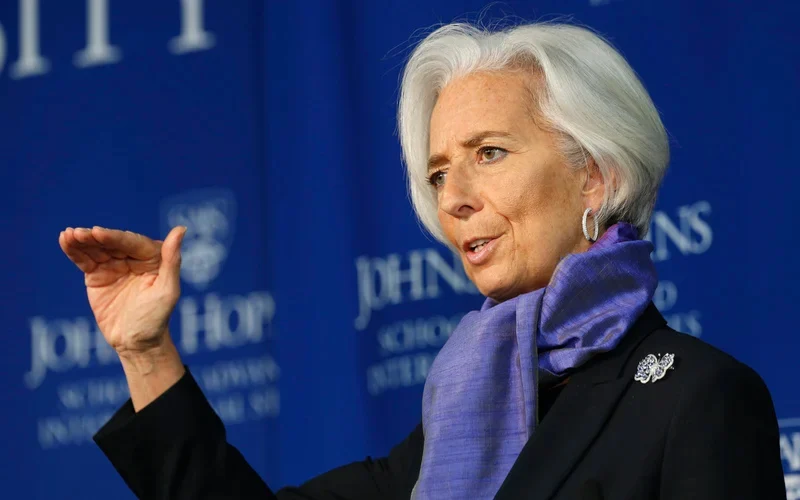In an unprecedented move, European Central Bank President Christine Lagarde seized the mobile phones of her fellow policymakers during this week’s meeting, delivering a stern rebuke for the persistent issue of crucial information leaks ahead of policy decisions.
Lagarde’s bold action aims to put an end to the leak problem that has plagued not only her presidency but also that of her predecessor, Mario Draghi.
Join our WhatsApp ChannelAccording to a Reuters report, Lagarde commanded the 26 members of the Governing Council on the first day of the meeting. The move came as the policymakers were set to choose Claudia Buch as the ECB’s top banking supervisor, according to sources familiar with the matter.
Mobile phones were returned only after the official announcement of Buch’s nomination as chair of the Single Supervisory Board, which oversees more than a hundred of the Eurozone’s major banks.
READ ALSO: Sony Partners With Startale Labs for Web3 Blockchain Project
The decision to confiscate the phones was prompted by a similar incident in 2018 when the media prematurely disclosed the choice of the current chair, Andrea Enria.
Addressing the issue, Lagarde stated, “This leak undermines the integrity of our institution and affects market expectations. We cannot allow this to persist.”
The surprising move by Lagarde came on the heels of a Reuters exclusive report revealing the ECB’s intention to raise a key inflation forecast, setting the stage for an unexpected interest rate hike. This revelation caught most economists and traders off guard, as they had anticipated the ECB to maintain interest rates at their current levels.
Lagarde expressed her frustration with the leak at the outset of the two-day meeting, a sentiment echoed by several colleagues. Her efforts to create a more harmonious atmosphere within the Governing Council, inherited from Draghi, have been met with relative success despite the initial divisions.
Ironically, high inflation over the past two years limited room for dissent and compelled the ECB to initiate a series of interest rate hikes. However, as borrowing costs rose, more policymakers began to voice reservations about further hikes.
Lagarde emphasized that the latest interest rate increase enjoyed support from “a solid majority of the governors.” This marked a departure from the unanimous approval of the previous rate hike in July and a “very, very broad consensus” a month earlier.
Throughout her tenure, Lagarde has worked diligently to build consensus among her colleagues. Early in her term in 2019, she gathered them at a German mountain castle, pledging to spend more time listening and avoiding the premature disclosure of decisions.
In return, she called on governors to keep policy disputes out of the media and refrain from using their phones during colleagues’ discussions.
Last year, Lagarde introduced informal guidelines instructing policymakers to present the majority view to the public immediately after the ECB’s policy decisions, reserving “personal” views for the following Monday.
The ECB’s president appears determined to maintain the confidentiality of the institution’s internal affairs and protect the integrity of its decisions in the face of ongoing challenges related to information leaks.
Emmanuel Ochayi is a journalist. He is a graduate of the University of Lagos, School of first choice and the nations pride. Emmanuel is keen on exploring writing angles in different areas, including Business, climate change, politics, Education, and others.


















Follow Us